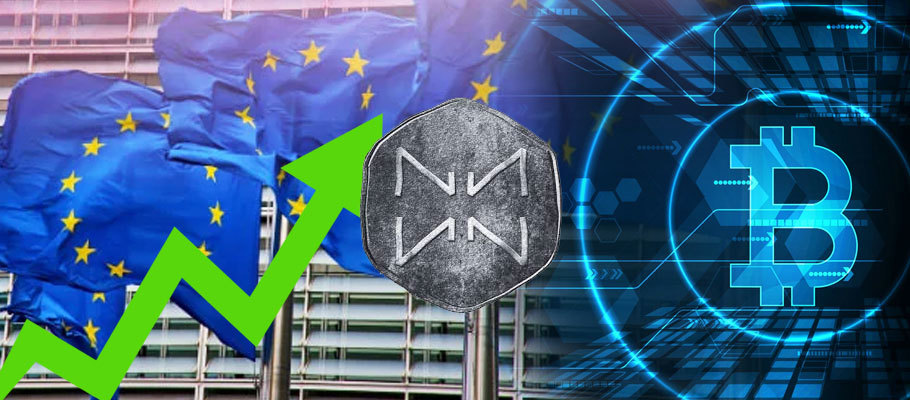
Published: June 13th, 2020
Nomisma has become the first crypto derivatives platform to win regulatory approval from the EU’s Financial Market Authority for a blockchain-based Multilateral Trading Facility (MTF).
The license enables Nomisma to offer derivatives based on security tokens, payment tokens and utility tokens. According to a company announcement, it's the first crypto derivative-trading MTF to earn an EU-wide operating license.
Mifid2 covers most activity in Europe’s financial services industry aims to provide transparency in transaction record-keeping via stringent reporting requirements. The regulatory regime was brought in by EU lawmakers to control the use of dark pools of liquidity, and increase oversight of private exchanges which previously had less demanding reporting requirements.
Any exchange offering a product to EU customers needs a license to operate. Approval from the Financial Market Authority puts Nomisma on the same regulatory playing field as traditional trading platforms.
The license does make a distinction between different types of trading venues, categorising them into MTFs, regulated markets, organised trading facilities (OTFs) and the instruments that can be traded on each.
The European Securities and Markets Authority (ESMA) hasn’t decided where crypto assets should fit in that taxonomy. The body’s current approach is to review new crypto assets case-by-case and see if it qualifies as a financial instrument and is subject to the legal framework. At the moment, Nomisma's license only covers derivatives, not trades in the underlying assets.
'In our case, the FMA's license is specific about what financial instruments we can trade in,’ said Nomisma Founder Dimitrios Kavvathas in a statement. ‘For us its derivatives on digital assets, including utility, security, and payment tokens.’
He went on to say that the EU license could make it easier to operate in jurisdictions like Singapore and Hong Kong, noting that under the EU’s regulatory umbrella, the company would be in a position to utilise the EEA’s passporting framework and operate where regulators offer mutual recognition.
Nomisma secured the license in late April, but there are still a few compliance hurdles to jump before it can offer crypto derivatives trading in earnest. Tokenised assets, including digital asset derivatives, should be available soon. Kavvathas has told analysts that the company is looking for additional partners and funding to move forward.
Nomisma already has Susquehanna International Group (SIG) on board, with the trading giant confirming one of its affiliates will use the new platform when it launches. SIG has also given its vote of confidence by leading on all Nomisma’s funding rounds over the last eighteen months.
Ethereum blockchain developer ConsenSys has also invested in the company and acts in an advisory capacity to Nomisma’s board.
ConsenSys's head of business development Andrew Keys has been heavily involved, Kavvathas said. Keys is the second-largest of its outside investors and is helping the company carve out space in the rapidly growing crypto derivatives market.
Nomisma’s derivatives trading system architecture enables digital assets to be settled in a hybrid environment, on- and off-chain. It uses Nomisma’s Matching Engine technology, which harnesses market-making tools and makes them accessible to every market participant.
In addition to creating a hybrid environment with its product, Nomisma’s relationship with SIG has the potential to open the door to institutions looking for a validated way into the digital asset ecosystem.
The firm hasn’t yet been licensed for operation in the soon-to-Brexit UK. Britain’s Financial Conduct Authority (FCA) lists details of regulated firms in the country. The UK is still treated as an EEA member state until the end of 2020, but Kavvathas has said registration with the FCA is coming soon. He's also signalled his intention to expand Nomisma’s European team, currently composed of 17 engineers and quants.
Cryptocurrency derivatives are have gained steadily in popularity this year. Like any derivative, they draw their value from underlying assets; in this case, cryptocurrencies. Perhaps the most popular crypto derivative is the Bitcoin futures contract.
A group of former Morgan Stanley developers launched a cryptocurrency derivatives platform called Phemex earlier this year. The company says it will soon offer 100x leverage to institutional and retail investors on Ethereum, Ripple, and Bitcoin contracts.
Speaking to journalists at the time of launch, Phemex’s management team said they expected traditional financial products including forex, stock indices, to back their contracts. Speed is another selling point for the company, which boasts its platform is ten times faster than other crypto trading platforms.
The Chicago Mercantile Exchange (CME) was the first to offer Bitcoin futures in December 2017. The first regulated institutional exchange to introduce a crypto derivative was LedgerX.
The market leaders in crypto derivatives trading are understood to be BitMex and Derabit. Hong Kong-based BiMex has a flagship instrument that tracks Bitcoin’s price against USD. The exchange offers a suite of professional trading tools with capabilities like order book, price chart, depth chart, trades printing, and technical analysis tools.
Amsterdam-based Deribit offers cryptocurrency futures and options trading in Bitcoin. Like Phemex, the Deribit perpetual Bitcoin USD instrument also lets traders leverage up to 100x.
MiFiD2 is the set of rules that regulates financial trading in the European Economic Area (EEA), which covers all EU member states and countries that have joined the European Free Trade Association (EFTA).
The original 2007 iteration of MiFID sought to harmonise regulation of financial markets including over-the-counter trading, but the global financial crisis of 2008 laid bare weaknesses in the existing rules. The EU expanded MifiD’s reach in 2017 to include asset classes beyond equities.